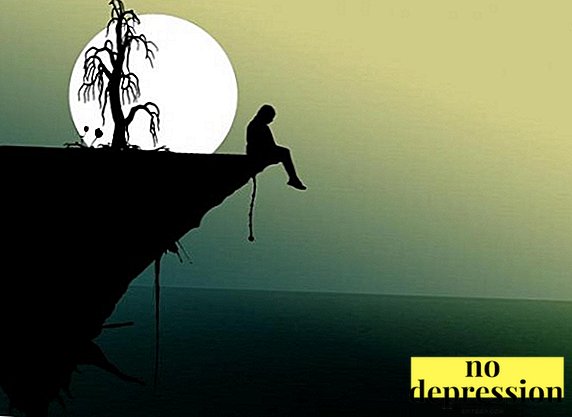People who create a family do not always resemble each other in character and outlook.
If a man and a woman before marriage didn’t try to study each other properly, learn goals, habits, then it will become clear later, and it may turn out that the key desires of one spouse are not combined with the wishes of the other.
“A husband wants a child, but I don’t want: what to do?”, “My wife wants to give birth, and I don’t want children: what to do?” - family psychologists regularly face these and other questions. It is not easy to help such couples, but in some cases it is possible to find a solution.
Childfrey - who is it?

What are the names of people who do not want children?
People living in developed countries, increasingly come to the idea that they do not want to give birth and raise children.
Childfree Phenomenon - ideologies to which people who do not want to have children belong - is thoroughly investigated by the scientific community, and various religious and political figures seek to designate their position regarding this movement.
In the animal world, reproduction is the key to the survival of the species: the more actively the animal reproduces, the higher the chances that at least some of the young will survive and be able to create their own offspring.
This was also a very long time for people: a large number of children died in the first years of life from infectious diseases, hunger and other difficulties, therefore the need to actively reproduce was relevant.
But over the past hundred hundred and fifty years, much has changed: vaccines, antibiotics, and other means have appeared that have made it possible to incredibly reduce mortality. Therefore, people were able to abandon active reproduction.
The quality of life of most people has also changed for the better: even the poorest people in developed countries have the opportunity to eat reasonably and receive medical care.

For this reason, the priorities of people living in developed countries began to change: they began to make a lot of effort to get education and good work.
The desire to realize oneself and fulfill dreams became no less important than the creation of a family, and sometimes more.
Also, people began to invest differently in the offspring: the key was not quantity, but quality. Children are trying to give the best so that they can reach their potential and achieve more in the future.
All this was the reason for the emergence of childfree: people who decided not to put childbearing in priority. They strive to realize themselves, engage in hobbies, move up the career ladder, create strong friendships, enter into marriages with those who share their views.
It is important not to confuse the concept of "childfree" and "child-heyt". Childheaters do not just refuse to give birth, but they have a strong hatred for children and everything connected with them.
The percentage of childheaters among childfree is low. 25% of women in the United States identify themselves as childfree. Also, childfree is much more among developed people with higher education.
Psychology and reasons for not giving birth

In Russia and most countries of the former USSR, the number of people who do not feel that they want to have children is growing.
At the same time, most childfree systematically face pressure from society: parents, lovers, and friends can put pressure on them.
In Russian society, the idea that children are the most important thing in the life of both men and women (especially women) is strong.
Therefore, both women and men, who once realized that they do not want to have children, can feel perceptible discomfort. “Why don't I want children?”, “Is everything okay with me?”, “Maybe this is temporary and then everything will change?”.
Even people who have consciously identified themselves as childfree may feel anxious about their choice, since reproductive pressure in society is extremely strong.
The main reasons for abandoning children:
- Unwillingness to face their physiological and psychological characteristics, the desire to avoid health problems that are associated with childbirth and their consequences. Taking care of children, especially babies and preschoolers, parents are forced to perform a lot of unpleasant actions like changing a diaper, cleaning traces of feces, urine, and vomiting. Small children often scream, and the cause of their discontent is not always easy to find. They require a huge and continuous investment of time and effort, so not all people want to be related to this. Pregnancy and childbirth are also able to leave behind chronic diseases and aggravate those that are already present.
- The realization that without children live easier and more comfortable. Parents, bringing up the child and taking care of him, invest in him strength, time and other resources for at least eighteen to twenty years. Many childfree are aware that their life will be much more pleasant if they don’t have to invest in children. And the resources they seek to send in a different direction.
- The desire to live life as you want, do what you want. The absence of offspring will allow both men and women to immerse themselves in their favorite affairs, in work, in self-development, in communication and relationships, since there will be no need to spend resources on children.
- Psychological unavailability. Many young people believe that they do not want children, and thoughts about children may cause them to disgust. This installation can appear if, for example, a large number of childfree is present in the person’s environment. Over time, such people can change their mind and have children.
However, it should not be assumed that all young childfree just psychologically are not ready for children and then they will definitely change.
- Psychological trauma, negative experience. In some cases, the installation associated with the reluctance to have children, occurs if in childhood and adolescence a person was forced to take care of younger brothers or sisters, without having the desire to do so. Some parents require older children to perform parental duties instead. For this reason, they are usually referred to as toxic.
- The confidence that giving the child everything that is needed will definitely not succeed, therefore it is better not to give birth. In some cases, such thoughts occur in people with chronic mental disorders (depression, neurosis), because such diseases seriously affect the way a person looks at the world. However, only a small part of childfree refuses children for this reason.


Also, many childfree, arguing their position, mention that there are more than enough people on Earth, and their rapid increase will not do it good.
Reluctance to have children is completely normal. As, however, and the desire to have them. It is important to understand that each person lives his own life, and only he decides what it will be.
If you realize that you do not want children, you feel any tangible psychological discomfort about this, a psychotherapist or a psychologist can help you. However, finding a specialist who will not put pressure on you and at the same time help eliminate anxiety is not easy.
Also, people who feel their involvement in the childfree movement can be helped by communicating with other childfree. But it is important not to hit the child-hearth at the same time: hatred of any kind does not benefit anyone. It is important to remember that you are only responsible for your life.

If your spouse or girl tells you that she does not want children, it is important to ask her about the reasons for this decision, without showing aggression.
It is most likely that she will lead the arguments mentioned above.
A solution that suits both can only be found in the process of constructive dialogue. It is possible that you will eventually have to part because of differences in life goals.
Recommendations of psychologists to women
Recommendations for common requests:
- The husband wants a child, but I am not ready: what to do? During the constructive dialogue, try to explain to your husband why you do not want to have children in the near future. Explain to him what conditions must be met so that you want to have children (for example, "I want to finish university and work for a while to get work experience. At the same time, we will be able to pay the loan faster").
If there are no such conditions, try to convey to him the idea that you need time to decide.
If the husband responds to all attempts to explain himself inadequately, it is important to think about the divorce. Reproductive violence is unacceptable, and the decision to have children must be mutual and balanced.
- I do not want a child from her husband. Why do you not want children from him? Does he dislike you? Does it behave inappropriately? His behavior does not suit you? If this is the case, then the lack of desire to have children from him is secondary, and another desire should come to the fore: divorce. Analyze your own situation and think about the possibility of divorce. If, for example, you do not want to have children from your husband, because he has any serious illness that can be transmitted to them, then discuss your own experiences with him, give arguments. Perhaps you should resort to IVF, using donor sperm.
- The husband wants a second child, but I do not: what to do? List to him the reasons for your own unwillingness, argue them, while avoiding aggression, irritation. If you can decide to have a second child, but in cases where certain conditions are met (having enough finances, the husband’s willingness to actively take care of the child from the first days of life on an equal basis with you), report them.
Remind him of what your first child's birth cost (chronic diseases, weight gain, psychological fear of pain in childbirth, and so on).
- I do not want to have a child, but already pregnant. Until a certain stage of pregnancy, there is always the possibility of an abortion. If the man who has impregnated you is your regular partner and you plan to create a family with him (or she has already been created), it is important to discuss the possibility of abortion. List the reasons for your desire to have an abortion (lack of financial resources for maintenance, chronic diseases, the need to work, to get an education). If he reacts inadequately, it may be worth thinking about breaking up.
- I do not want to have children ever. Remember that you have the right to dispose of your own life and should not tolerate reproductive pressure from anyone. If you want to start a family, try to find a spouse who shares your life priorities. Carefully review the information related to the types of contraception, and determine for yourself the appropriate methods of protection against unwanted pregnancy. In Belarus and Ukraine, any woman over 18 has the opportunity to do sterilization. In Russia, it can only be held by a woman over 35, who has at least two children. If you are planning to sterilize, it is important to weigh the pros and cons, since there is no possibility to reverse the operation.


Tips for desperate men
Answers to common questions:
- What to do if a woman does not want children from me? Try, keeping calm, carefully ask her about the reasons. Ask what you can do to make her decide to become pregnant. If your life together is unstable and full of difficulties, it is not surprising that the woman does not decide on pregnancy. Before you give birth to children, it is important to achieve financial stability in the family.
If the reason for the refusal in your behavior and problems in the relationship, it is important to find ways to solve them, because the desire to raise children in a family in which there is no happiness and comfort is unlikely to appear.
- The wife does not want to have a second child: what to do? In case of any difficulties, a polite and constructive dialogue can help. It is important to find out why she does not want to have a second child, and ask her what needs to be done to make her want it.
 Offer help from your side (“I will take care of the child instead of you, and you will continue to work”, “I will take care of the household to help you”, “I will find a part-time job”).
Offer help from your side (“I will take care of the child instead of you, and you will continue to work”, “I will take care of the household to help you”, “I will find a part-time job”).With a promise of something, be sure to do it. Constantly let your wife understand that she can count on your support and that your family is strong. Do not blame her. Always remember that it is she who will have to bear a child for nine months and, possibly, pay for it with health problems, and not you.
In case of any family problems, including those related to the birth of children, qualified family psychotherapists can help.
Each person must decide for himself what his life will be, and take responsibility for your decisions. Having children and taking care of them is only one side of life, and not all people may want to overlap with this side if they have others.
If a man says he wants a child, how to perceive it? Find out from the video:

 Offer help from your side (“I will take care of the child instead of you, and you will continue to work”, “I will take care of the household to help you”, “I will find a part-time job”).
Offer help from your side (“I will take care of the child instead of you, and you will continue to work”, “I will take care of the household to help you”, “I will find a part-time job”).

